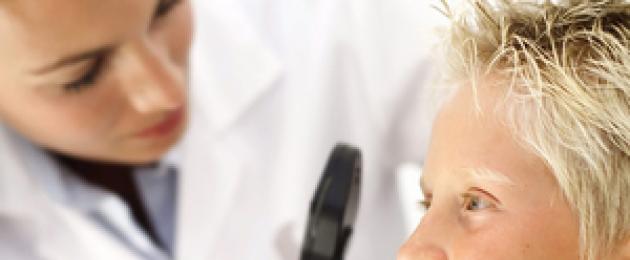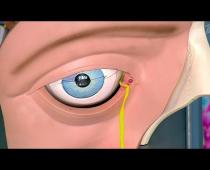Pediatric ophthalmology - our children's center for ophthalmology has a full range of equipment for diagnosis and treatment. eye diseases in children. The department is headed by an experienced clinician with more than ten years of experience in European clinics.
Modern equipment allows for a complete ophthalmologic examination a child of any age, assign the correct correction (glasses or contact lenses), if necessary, conduct a comprehensive treatment of amblyopia, strabismus, myopia, using both traditional and modern computer techniques.
THIS IS INTERESTING: Few people know that newborn children have very low eyesight, which subsequently gradually improves, improves and reaches normal values by about seven years of age.
An early ophthalmologic examination will allow timely detection of abnormalities and timely start the necessary eye treatment in children. The nature decreed that if the correct diagnosis was not made on time and the treatment was not performed under the age of ten years, and in some cases up to three to five years, then in the future even the anatomically normal eye does not acquire the ability for high vision.
How to prepare for visiting an ophthalmologist?
Before the examination of children and adolescents (under 18), the doctor takes a history, ie history of illness.
It is important to know how the child was born, on time or earlier, how much it weighed, whether there are chronic diseases, whether other specialists are experiencing, what allergies were, what, as expressed, it is recommended to recall and clarify which drugs had an allergic reaction.
In general, the examination of the child lasts about 2 hours (taking into account the expectations of the expansion of the pupils). After such an examination, some patients will not be able to read and write, do homework. After receiving a certificate issued to the school.
If your child already wears contact lenses, then you should come to a full primary or follow-up appointment (every 6 months) without contact lenses, and with glasses. Contact lenses should be removed no less than 1 hour before visiting an ophthalmologist.
If you have recorded a child for contact correction and for repeated monitoring - come without contact lenses, wear glasses, bring lenses in a container, it is advisable to bring lens boxes (or blister foil) so that the doctor can see what kind of lenses your child wears.
In contact lenses at the reception should come only if the doctor said so. This is done only if the doctor needs to do eye control and the child should be in the lenses for several hours.
Why is it important to regularly visit a pediatric ophthalmologist?
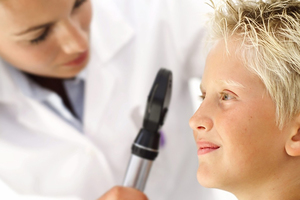
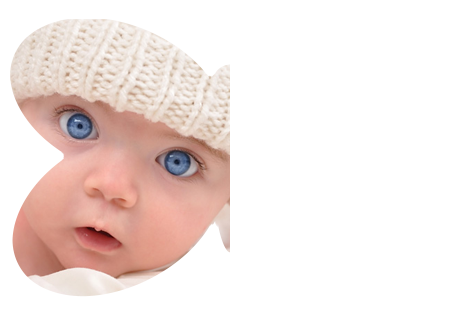
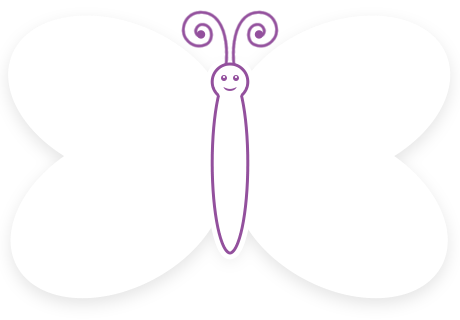
Light energy, the correct perception of images of the surrounding world with the eye - all this stimulates the growth of the child, his metabolic processes, normalizes and accelerates the psychophysical development from the first year of life.
90% of information about the world around us is perceived through the eye, and children master the world around them primarily due to their vision. It is at this time that the connection between the eye and the cerebral cortex is formed and strengthened.
Good vision is the dream of every person. Proper care will help maintain eye health for years to come. Choosing a clinic is a very difficult process. You need to carefully examine the services they provide, their cost, customer reviews and more. In this article we will look at eye clinics Moscow, rating them and reviews.
Moscow Eye Clinic (CIM)
Starts our rating of eye clinics in Moscow, reviews of which will be lower, Moscow Eye Clinic. It will conduct high-quality and effective diagnosis and treatment of eye diseases. The clinic has no queues, you can consult and be examined by professional ophthalmologists. It also has the latest equipment and customer service of all ages.
In this clinic you can:
- identify the causes of visual quality deterioration and eliminate them;
- correct vision using a laser technique;
- painlessly remove cataracts;
- cure glaucoma using various modern methods;
- undergo therapeutic treatment in ophthalmology.
The best eye clinics in Moscow, including CIM, aim to provide convenient, affordable, and skilled care to people who have vision problems. Moscow Eye Clinic is a combination of high quality treatment, maximum comfort and minimal time and money.
All employees of the clinic are very kind to their work, have high qualifications and considerable experience. Professional ophthalmologists individually approach each client to choose the best and most effective way to treat eye pathologies.
All private and public eye clinics in Moscow, whose rating we consider, have high-quality and modern equipment. Moscow Eye Clinic conducts a full ophthalmologic examination using the latest equipment. For the treatment of various diseases, specialized surgical equipment for vision correction is used.
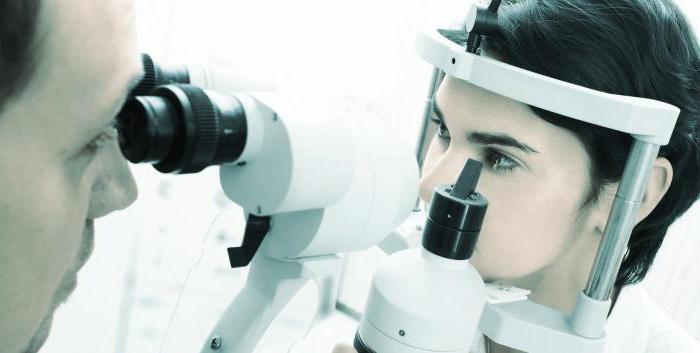
Clinic reviews
All eye clinics in Moscow have their reviews. Moscow Eye Clinic is one of the best, and the reviews about it are only positive. Many patients who had to seek help in the CIM were satisfied. People noted a pleasant atmosphere, friendly staff, experienced and professional doctors who will answer any interesting question and advise on any problem. Also, visitors talk about quality equipment that makes the treatment process quick and painless as possible. Separately, it should be said about the professional surgeons of the clinic, who conscientiously and efficiently perform their work. The only drawback of this clinic, people consider high prices. But the qualitative examination and treatment of eye diseases fully justify the cost of services.
Institute. Helmholtz (scientific research institute, eye clinic)
The best eye clinics in Moscow, the rating of which we are considering, should be further described, mentioning the Institute. Helmholtz. This clinic provides solutions to problems with ophthalmology of any complexity. The clinic is known for its long experience of professional staff, the use of scientific and therapeutic potential. All eye clinics in Moscow (public and private) are equipped with the latest equipment. Institute. Helmholtz, thanks to the high qualifications of ophthalmologists, we carry out professional examination and treatment of patients of all ages. Here they accept and provide quality assistance even to newborns. Not all children's eye clinics in Moscow undertake the treatment of such small patients.
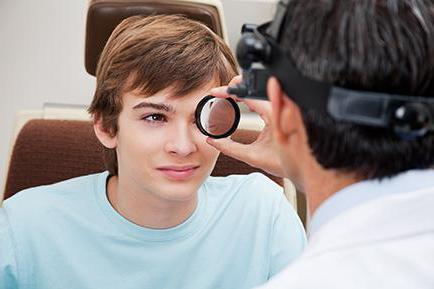
Reviews of this clinic are quite controversial. Many patients who sought help at this ophthalmological center were satisfied. People noted the high-quality and conscientious work of surgeons, their benevolent attitude and individual approach to each client. However, some patients complain about long queues and the pompous attitude of doctors.
MNTK "Eye Microsurgery" named after S. Fedorov
The list that lists the eye clinics of Moscow, the rating of which we are studying, includes the well-known Interdisciplinary Scientific and Technical Complex “Eye Microsurgery” named after S. Fedorov. It is at the same time a scientific institution, modern clinic, training center and experimental production. The clinic employs professional staff, uses the latest equipment and modern equipment. Specialists of the clinic will help to cure any ophthalmologic diseases of people of all ages. Not all eye clinics in Moscow (state) can boast such a quality of services provided. The clinic has been successfully introducing new technologies for ten years, conducting research, developing advanced methods of treating eye pathologies of varying complexity.
Reviews
All eye clinics in Moscow, the rating of which we review, have their reviews. MNTK "Eye Microsurgery" named after S. Fedorov boasts extremely positive reviews. All patients note the high professionalism of doctors and surgeons who perform their work efficiently and in good faith. The staff are friendly, always ready to help the patient and answer any questions. The clinic does not have long queues, patients are served quickly. Customer prices are also encouraging, given that this eye complex is a public institution. The quality of the services provided corresponds to the cost. All patients who had to ask for help in this clinic were satisfied and happy. 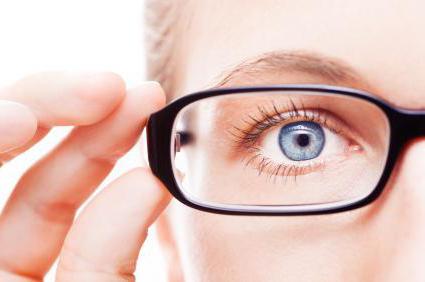
Eye clinic "Vision"
Eye clinics in Moscow, whose rating we are studying, will continue to be reviewed with a description of the Vision Clinic. She is quite young, but well-known and authoritative. Every year it increases the qualification level of doctors and operations, there is a development of new treatment options and vision correction. Employees provide quality service, regardless of the level of complexity of the problem. In the clinic "Vision" treatment is carried out successfully and efficiently:
- cataracts;
- glaucoma;
- myopia;
- farsightedness;
- strabismus and many other diseases.
We look for an individual approach to each client, conduct a comprehensive study, consider all possible treatment options. Services are provided to people of any age. The clinic has a special children's department of ophthalmology, where professional specialists work, who qualitatively and conscientiously help young patients.
The equipment in the clinic is as safe and effective as possible to diagnose and treat the most complex eye pathologies. Vision actively uses computer and optoelectronic equipment, with the help of which microsurgical and laser surgeries are successfully performed.
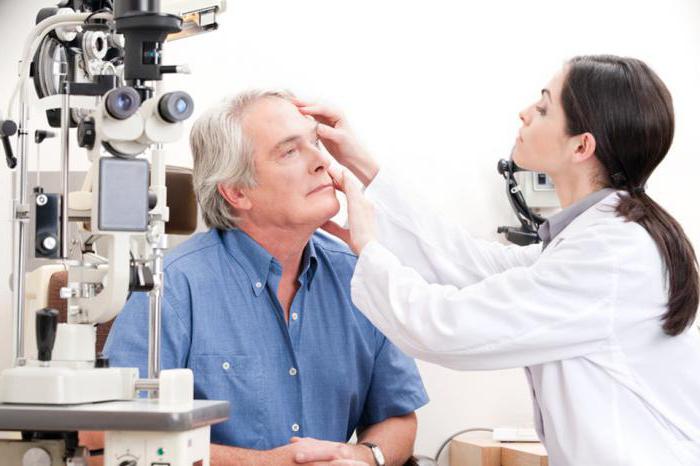
In this center of ophthalmology use bloodless, seamless low-impact surgery, which every day becomes more and more popular.
Unfortunately, the statistics of eye diseases in children are not happy. More than 60% of babies in the first ten years have vision problems. Eye diseases can adversely affect not only the quality of life and the development of educational material, but also health in general, because the eyes are an indicator of the state of the whole organism.
Fortunately, pediatric ophthalmologists come to the rescue. Below we will look at when and how often children should be shown to the oculist, what a good pediatric ophthalmologist should be able to do. what criteria does he pay attention to when examining the condition of a small patient.
Children's ophthalmologists: how often to visit them?
Pediatric oculist sets himself the task prevent the development of diseases and save the sight of the kids. Eyesight test is a basic procedure for passing an annual medical checkup. That is, the ophthalmologist needs to show the child at least once a year.
The first visit to the oculist is recommended to make when the child is one month old. At the age of one year, you can check in 2-3 months, six months and directly a year. In the future, the child can look around at 3, 5 and 7 years. Such precautions will help to diagnose many diseases in a timely manner, and as a result, preserve and correct vision, avoiding potential negative consequences. Also inspection at the eye of the eye is necessary before entering school or kindergarten.
But if you notice something suspicious, you should immediately contact a specialist, albeit unscheduled, since the inflammatory processes in children appear specifically and progress quickly. If you take up the treatment in a timely manner, then problems with vision with proper and quick treatment, as a rule, are solved quickly and efficiently, without serious intervention.
Children need regular checkups. at risk, namely:
- Children, parents who have diseases of the organs of vision;
- Babies born prematurely;
- Children whose relatives have glaucoma.
When does a child need to be led to a child oculist?
In addition to the annual inspection, if you have noticed some of the following circumstances with your child, better to make an appointment and once again checked. Here they are:

What does a good pediatric ophthalmologist pay attention to?
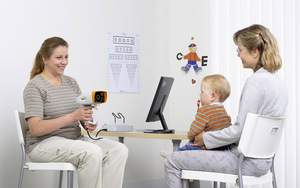
What should be able to qualified doctor?
- Prescribe the correct treatment based on the principles of evidence-based medicine and modern scientific work.
- Choose contact lenses or corrective glasses, after determining the visual acuity of the child.
- Correctly interpret the symptoms. For example, mucus in the corners of the eyes of a baby does not necessarily confirm the presence of conjunctivitis; it is likely that this is dacryocystitis in newborns, in which there is obstruction or narrowness of the tear duct.
- Promptly detect the disease and take action. In some cases, the child’s full recovery and the complete prevention of negative consequences in the future will depend on this. For example, timely diagnosed and removed accommodative spasm will not turn into a more serious stage - myopia. Glaucoma stopped at a young age will not impair vision at a more mature age. In addition, in childhood, ophthalmic surgery is more effective and less traumatic.
How to choose the best ophthalmologist?
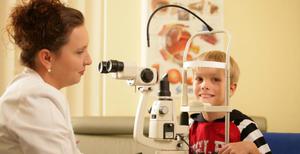 Surely you can not say which ophthalmologist will suit your child better, since much depends on the specialization. Some doctors are experts in working with newborns (congenital cataracts, retinopathy, and so on), others successfully apply apparatus vision correction (for strabismus and amblyopia), others are specialists in eyelid pathology correction, and so on. That is, you need to choose a doctor based on the existing problems.
Surely you can not say which ophthalmologist will suit your child better, since much depends on the specialization. Some doctors are experts in working with newborns (congenital cataracts, retinopathy, and so on), others successfully apply apparatus vision correction (for strabismus and amblyopia), others are specialists in eyelid pathology correction, and so on. That is, you need to choose a doctor based on the existing problems.
findings
Pediatric optometrist recommended to visit at least once a year, as well as in front of the school and kindergarten. However, in educational institutions a full medical examination is annually carried out, and passing an ophthalmologist at it is mandatory by default. Until the child is one year old, it is useful to be examined in 2-3 months, and then in half a year.
Children at risk (with diseases that can have a negative effect on the eyes, as well as parents and relatives with eye pathologies) should visit the ophthalmologist more often. In the event of any signs of eye problems, complaints from a child or suspicion of injury You should immediately go to the pediatric ophthalmologist, as timely treatment will avoid serious consequences in the future.
$ arResult ["NAME"]
The children's ophthalmologist is a doctor specializing in the field of pathologies of the visual system in children, engaged in the diagnosis and correction of visual defects, the treatment of eye diseases of any nature.
The visual system is of particular importance in the physical and mental development of man. Visual images help the baby to master the world around and get the necessary knowledge. That is why, in the first years of a child’s life, it is necessary to constantly monitor his eyesight, diagnose violations in time, correct them and treat eye diseases.
Children's eye diseases every year are becoming more common. The use of modern gadgets, mobile phones, computers, e-books and game consoles, rest at the TV can have a negative impact on vision. The load on the eyes increases even more during school years, which often leads to overwork, reduced visual acuity and diseases of the visual system.
A timely visit to a pediatric ophthalmologist allows you to detect the problem in time and adequately respond to it.
The network of clinics "Family Doctor" provides an opportunity to visit a pediatric ophthalmologist by appointment, without queues and stress. Our doctors not only understand the diseases of the visual system, but also know how to find a special approach to young patients in order to conduct a full examination without discomfort and perform the necessary medical procedures.
What diseases treats children's ophthalmologist:
amblyopia, or "lazy eye" syndrome, in which one eye is not functionally involved in the visual process;
myopia (myopia) - impaired vision;
farsightedness - near vision disorders;
astigmatism - visual impairment due to irregular shape of the cornea or lens;
strabismus;
eye injuries;
corneal erosion - defects of the epithelium covering the cornea;
conjunctivitis - inflammation of the mucous membrane of the eyes and eyelids;
blepharitis, or inflammation of the eyelids;
barley, or inflammation of the sebaceous gland or hair follicle; eyelashes;
iritis, or inflammation of the "iris" of the eye;
degeneration of the cornea and retina;
tired eye syndrome and computer eye disease.
a small child does not follow the toy, and you suspect that he does not see it;
the child squints or looks with one eye;
the child often stumbles upon objects, does not clearly perform small actions;
the child has a broken handwriting, he writes between the lines and reads with errors;
the child is worried about photophobia, pain, itching, burning or stinging in the eyes;
the child complains of poor eyesight, fog, double vision;
pupils have a different diameter or are directed in different directions;
the eye became red and dilated blood vessels are visible on the sclera;
swollen eyelids;
headaches often trouble the child;
the child is disturbed by the sensation foreign body in the eye.
How often do you need to visit a pediatric ophthalmologist for preventive purposes?
During the first year of life, the child should be examined by a pediatric ophthalmologist three times: at 1 month, 6 months and at 1 year.
In 3 years or even earlier - when you apply for a visit to kindergarten.
In 6-7 years, that is, directly in front of the school.
After a year of schooling.
Upon reaching 7 years old - annually, during the entire period of schooling.
If symptoms of visual pathology appear or are suspected they should be urgently visited by a pediatric ophthalmologist, regardless of when the child was examined by a doctor for the last time.
Children's ophthalmologists of the Family Doctor Clinic network will make a correct diagnosis, give necessary recommendations, select an effective treatment and help prevent further deterioration of vision and the development of diseases.
Diagnosis of eye diseases
Contrary to popular belief, a visit to a pediatric ophthalmologist is not limited to external examination and visual acuity testing.
Ophthalmologist examination includes:
determination of visual acuity (viziometry);
checking binocular and stereoscopic vision;
autorefractometry - hardware determination of the degree of visual impairment based on the refractive ability of the eye;
Yu, or measurement of intraocular pressure.
To identify the pathology of the visual system in the “Family Doctor” network of clinics, complex highly informative research methods are used to detect the slightest deviation from the norm.
According to the indications, the fundus of the eye and other structures of the eye are examined by means of biomicrographs, that is, using a fundus camera. If necessary, other specialists are involved in the diagnosis. Based on the data obtained, an individual treatment regimen is being developed.
Treatment of eye diseases in children
The specificity of most visual impairment in children lies in their reversibility. The organ of vision grows and changes, so it is responsive to conservative treatment. For the vision to be fully restored, it is often enough to correct the daily regimen, special training, good rest and vitamin therapy. You will receive all the recommendations you need for home treatment from a family ophthalmologist at the Family Doctor Clinic.
In the "Family Doctor" clinics, doctors practice an integrated approach to the treatment of eye diseases.
In conservative therapy uses the latest methods of training the eyes using a variety of modern devices.
The complex "" is used for video-computer eye training, overcoming the neurogenic disorders that caused the visual impairment.
It is aimed at stimulation of recovery processes for injuries and various diseases.
Even if you managed to remove the stimulus, you still need to urgently contact a pediatric ophthalmologist. This will prevent possible complications.
The modernization of the Moscow healthcare system has created new opportunities for providing medical care to patients from birth and up to 18 years of age in the ophthalmological center of the Morozovskaya DGKB DZM hospital. Like many institutions in Moscow, we have the most modern equipment that exists today, we own high-tech surgical procedures, we perform almost the whole range of ophthalmologic care.
It makes sense to dwell on the differences that exist between us and other structures, both private and public, providing assistance to children with diseases of the organ of vision.
In fact, in no institution in the country will your child be offered a unique fusion of the invaluable practical experience of 3 famous ophthalmology clinics of Russia - Morozovskaya Hospital, MNTK Microsurgery of the Eye to them. Acad. S.N. Fedorov and NIIG them. Helmholtz. This became possible due to the fact that the staff of the Morozov hospital was replenished with employees of these "flagships" of domestic ophthalmosurgery. In the scientific and practical activities of the department takes an active part and the Department of Eye Diseases RNIMU them. N.I. Pirogov.
The structure of the ophthalmological service of the Morozov hospital includes:
- department of Ophthalmology and Eye Microsurgery, providing round-the-clock emergency care for children with diseases of the eye and orbit;
- department of Neonatology, Neurology and Eye Microsurgery for Infants;
- ophthalmology department of the consultative and diagnostic center (Mytnaya, 24).
The eye microsurgery department has 30 ophthalmological beds. Talking about the help that we provide to children with different ophthalmopathology, it is necessary to dwell on the staff of the department: Head of the Ophthalmological Service of Morozovskaya Hospital - Ph.D. Ovchinnikova Anna Vladimirovna - she worked for more than 20 years under the guidance of Acad. S.N. Fedorov in the department of cataract surgery and IOL implantation in children, was responsible for the research work of the department. Head of department, chief pediatric ophthalmologist of Moscow DZ - candidate of medical sciences Kononov Leonid Borisovich - more than 10 years he worked at the Research Institute of National Public Library named after Helmholtz in the Department of Eye Pathology in Children. The staff of the department conducts active scientific work, regularly takes part in the work of specialized congresses and conferences, conducts master classes, and constantly improves their qualifications.
The medical department:
Ovchinnikova Anna Vladimirovna - Head of the Ophthalmological Service, Candidate of Medical Sciences
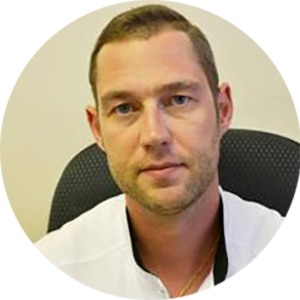
Kononov Leonid Borisovich - the main children's ophthalmologist of the Moscow Healthcare Department and the head of the department. department, candidate of medical sciences.
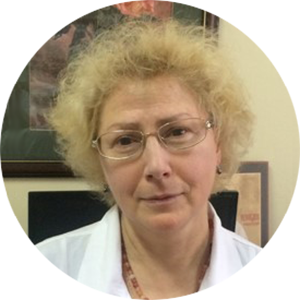
Elena Gorbunova - Candidate of Medical Sciences, doctor of the highest category
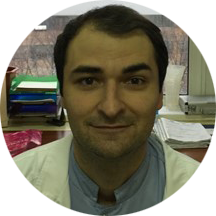
Kaziev Sabir Nizamievich - Candidate of Medical Sciences
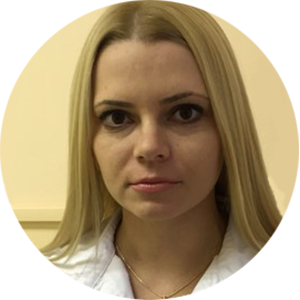
Shestova Julia Pavlovna - Candidate of Medical Sciences
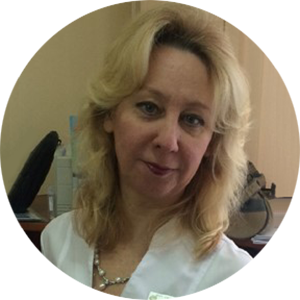
Anna V. Zakharchenko - doctor of the highest category
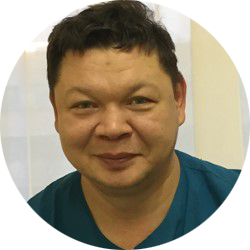
Anatoly Pavlyuk - Candidate of Medical Sciences
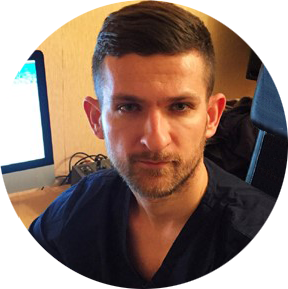
Valyavskaya Marina Evgenievna - doctor of the highest category
Doctors emergency ophthalmological care:
- Ivanova Lyubov Arkadevna - doctor of the highest category;
- Barakina Oksana Yurievna - doctor of the first category;
- Smirnova Nelli Vladimirovna;
- Khulamkhanova Fatima Mukhtarovna.
It is here that around the clock we provide emergency ophthalmologic care for children of any age. Highly qualified staff and adequate subsequent rehabilitation of young patients significantly reduced the percentage of severe outcomes with traumatic eye injuries.
In our practice, we use both the techniques developed in the leading research institutes of the country, and the methods that are unparalleled in our clinic. Annually in ophthalmology clinic Morozov Hospital has over 750 high-tech eye surgeries using modern methods and new materials.
The main area of our business is microsurgery. And so the equipment of the operating unit plays a leading role in our work, largely determining the quality of its results. We were given a unique opportunity to enjoy work, using the most modern model of an operating microscope, a system for surgery of the anterior and posterior segments of the eye with truly unlimited possibilities and other innovative instruments and tools.
- In contact with 0
- Google+ 0
- OK 0
- Facebook 0

